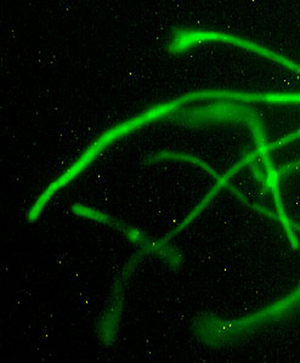Wheat and barley have been and will continue to be the cereal crops of major importance in the United States and around the world. In 2008, the U.S. produced over 130 million tons of wheat, third in the world behind China and India. Fungal diseases such as spot blotch are a consistent source of economic losses for the cereal crops. Spot blotch caused by C. sativus in barley and wheat is one of the most important diseases and remains a problem in many regions of the world.
The fungus Cochliobolus sativus is the sexual stage of Bipolaris sorokiniana, which is the causal agent of a wide variety of cereal diseases. In its asexual stage, the pathogen can infect and cause disease on the root (where it is known as common root rot), leaf and stem, and head tissue.
C. sativus also attacks many grasses, including switchgrass, which is currently being developed as a source of biomass for cellulosic biofuel production. The spot blotch disease causes moderate to severe damage of leaf tissue in susceptible switch grass cultivars, reducing crop yields. Sequencing the whole genome of C. sativus could speed up our understanding of the biology of the pathogen and thus may facilitate the development of new strategies for disease control.
Principal Investigators: Shaobin Zhong, North Dakota State University
Program: CSP 2010
